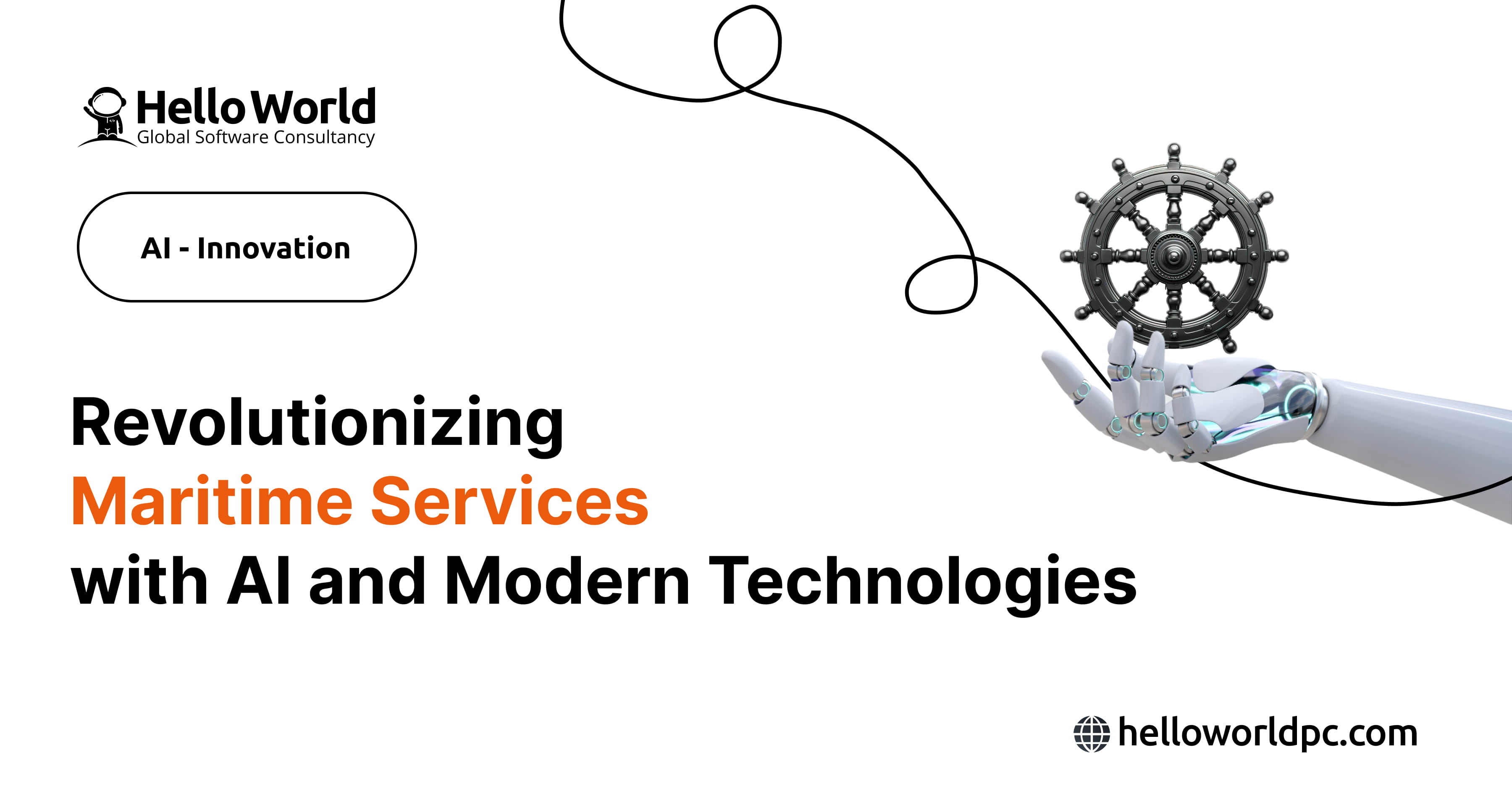Over the past few years, AI and modern technologies have taken center stage across various industries, bringing forth innovative solutions and transforming traditional practices. The maritime industry, with its complex operations and stringent regulations, is no exception. By leveraging AI, maritime services can enhance efficiency, ensure compliance, and optimize processes that are critical to the industry’s success. We view AI as an essential augment to human operators, emphasizing Augmented Intelligence over standalone AI systems. This approach ensures that AI enhances human decision-making and operational capabilities, rather than replacing them.
However, while AI offers immense potential, it’s crucial to understand how to best integrate these technologies within the specific context of maritime operations. This exploration will focus on how AI can be effectively applied to various aspects of maritime services, including inspection scheduling, legislative analysis, process control, email management, resume management, and database analysis. These are just a few examples of where AI can make a significant impact. Additionally, AI has the potential to revolutionize other areas, such as Augmented Reality (AR) training and predictive maintenance through Machine Learning (ML), with many more applications still emerging and awaiting implementation.
Inspection Scheduling Management: The Future of Compliance
Inspection scheduling is a critical element of maritime operations, essential for ensuring vessels comply with international regulations and standards. Traditionally, this process has been handled manually and is susceptible to human error. However, AI holds the promise of transforming inspection scheduling by introducing automation and optimization, significantly improving accuracy and efficiency.
-
Dynamic Scheduling Algorithms: Develop AI algorithms that automatically adjust inspection schedules using real-time data, including ship locations, inspection histories, and current regulations. Leverage machine learning models to predict the best times for inspections by factoring in variables such as weather conditions, port traffic, and crew availability
-
Risk Prediction and Compliance Monitoring: Predictive analytics powered by AI can assess the likelihood of non-compliance, allowing companies to take proactive measures. By continuously monitoring regulatory changes, AI systems can ensure that inspection schedules are always aligned with the latest standards.
-
Automated Communication Systems: Develop AI-driven systems to automatically send notifications about upcoming inspections to stakeholders like ship owners or IACS members. Use natural language processing (NLP) to create clear, understandable reports and alerts for both technical and non-technical users.
Navigating Complex Legislation with AI
The maritime industry operates under a complex and ever-changing regulatory framework. Keeping up with legislative changes is a daunting task; however, AI can streamline and simplify this process.
-
Legislative Change Monitoring: AI systems can continuously track legal databases and regulatory updates, identifying and interpreting changes in maritime regulations. This ensures that maritime companies remain informed about new regulations that could affect their operations.
-
Impact Analysis and Compliance Strategies: With AI, companies can simulate different scenarios under new legislative frameworks, helping them adapt quickly and efficiently. AI-driven impact analysis can provide actionable insights, enabling businesses to develop compliance strategies that align with the latest regulations.
Enhancing Process Control Mechanisms
In the maritime sector, process control is vital for maintaining operational standards and adhering to internal procedures. AI can significantly enhance these controls by automating monitoring tasks and optimizing processes.
-
Automated Monitoring and Compliance Tracking: AI systems can continuously monitor critical operations, such as cargo handling and fuel usage, detecting anomalies in real time. By flagging potential compliance issues early, AI ensures that maritime operations remain within industry standards.
-
Process Optimization: AI’s ability to analyze vast amounts of operational data allows for the identification of inefficiencies. By recommending improvements, AI can optimize processes like supply chain management and crew scheduling, leading to better overall performance and significant cost reductions.
Streamlining Email Management with AI
Efficient communication is essential in maritime operations, where delays can have significant consequences. AI can enhance email management, ensuring that important messages are prioritized and addressed promptly.
-
Email Categorization and Automated Responses: AI models can classify incoming emails into categories such as urgent, operational, or compliance-related, making it easier to manage high volumes of communication. Automated response generation can further enhance processes, allowing for faster, more accurate replies.
-
Reporting and Analytics: By analyzing email traffic and response times, AI can identify trends and areas for improvement, ensuring that communication within the maritime industry remains efficient and effective.
Optimizing Recruitment with AI-Driven Resume Management
Recruitment in the maritime industry requires careful consideration of candidates’ skills and experience. AI can automate resume processing, helping HR teams identify the most suitable candidates more quickly.
-
Automated Resume Parsing and Dynamic Matching: AI can parse resumes to extract key qualifications and match candidates with open positions based on their skills and experience. This not only speeds up the recruitment process but also ensures that only the most qualified candidates are shortlisted.
-
Suitability Scoring: By scoring candidates on their suitability for specific roles, AI provides HR teams with data-driven recommendations, improving the quality of hires and ensuring that the right people are placed in the right positions.
Unlocking the Power of Data with AI-Enhanced Database Analysis
Data is the lifeblood of the maritime industry, driving decisions and shaping strategies. AI can enhance database analysis by providing powerful tools for querying, reporting, and predictive analytics.
-
Natural Language Querying and Advanced Reporting: AI-powered systems can enable users to query databases using natural language, making data more accessible to non-technical staff. Advanced reporting tools can generate detailed insights, helping maritime companies make informed decisions.
-
Predictive Analytics: By forecasting future trends such as market conditions and maintenance needs, AI allows maritime companies to plan more effectively, optimizing their operations for long-term success.
Conclusion
AI and modern technologies are transforming maritime services, offering new ways to improve efficiency, ensure compliance, and optimize operations. However, as with any powerful tool, it’s crucial to understand the best practices for implementation. By recognizing the strengths and limitations of AI, the maritime industry can leverage these technologies to their full potential, driving innovation while maintaining the high standards that are critical to its success.
In the fast-evolving world of maritime operations, AI stands as a beacon of progress—if used wisely. The future of the industry is not just in embracing technology but in mastering it.

